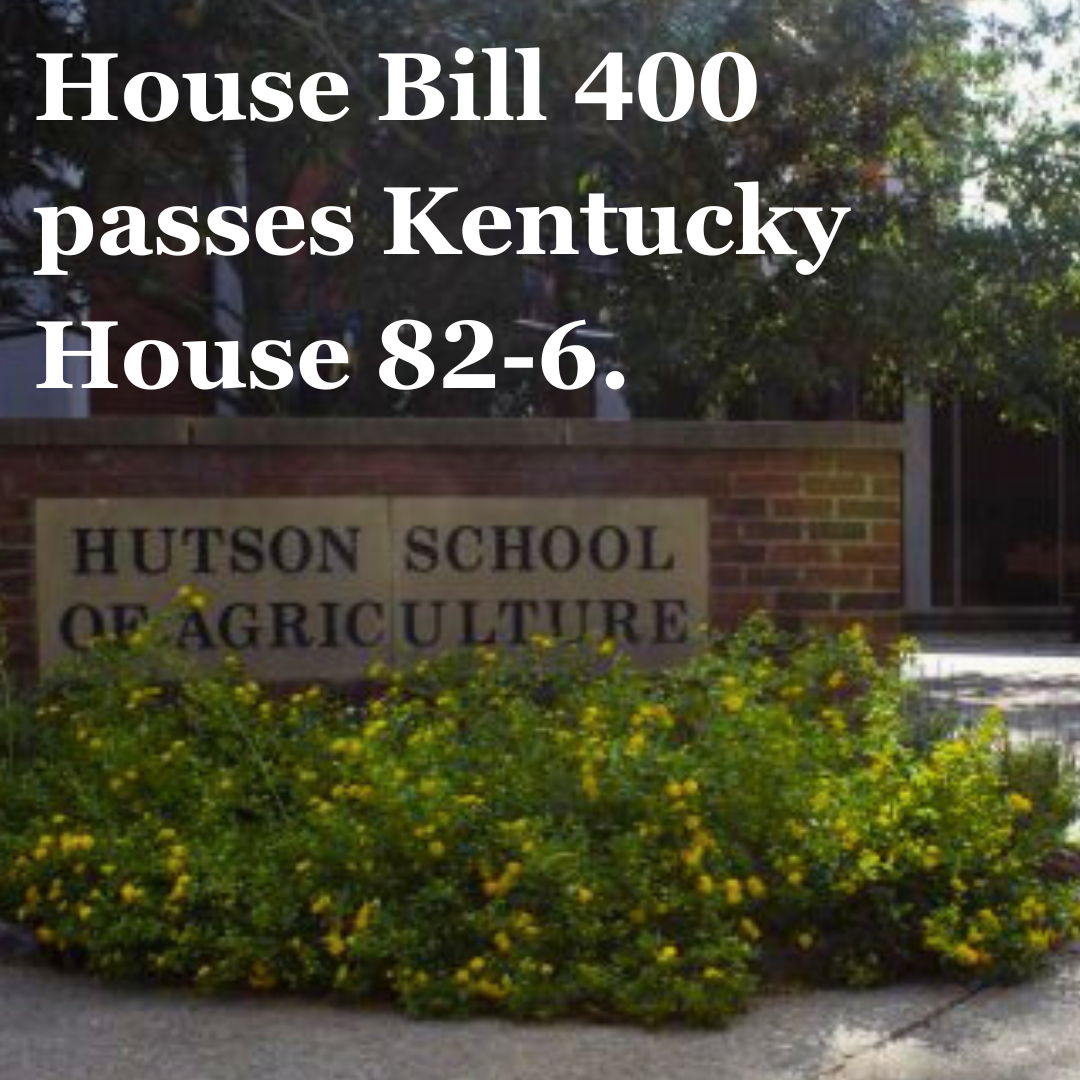Kentucky House members passed House Bill 400, which allows Murray State to offer doctoral degrees required for professional practice and licensure in veterinary medicine.
The bill passed 82-6. HB400 would not require the University to have a vet school, but instead allows the possibility.
Rep. Richard Heath (R-Mayfield) said the vet school could cultivate a number of skilled professionals in the veterinary field.
“By investing in veterinary education, we address today’s veterinary shortage and provide a career for Kentuckians,” Heath said. “The state can strengthen its agriculture sector, advance scientific knowledge and protect the health and well being of both animals and humans-it’s a vital step towards securing a brighter and healthier future.”
Chad Aull (D-Lexington) said he is concerned about the prospect of a vet school in Kentucky.
“We heard in committee the challenge that [vet] schools are having on finding experienced veterinarians and staff and faculty in this space. I don’t know why we think we would be different,” Aull said. “For me this vote is not about whether or not we should build a veterinarian school at any one particular location in Kentucky. It is, should Kentucky build a veterinarian school at all?”
Murray State is proposing a three-year vet school program. Brian Parr, dean of the Hutson School of Agriculture, said the distributive model of teaching is based on medical school education.
“Basics are taught in a classroom or lab and the first two years of any med school really are mostly classroom laboratories,” Parr said. “In the third year, they move more into part time in different rotations…in the final year, whichever year that is, they spend the whole year out making rotations and usually like three week rotations in different vet practices.”
Under the distributive model, it is estimated the building cost to be $90 million but does not include annual operating costs.
The annual operating costs will be approximately $9 million. The school plans to enroll 70 students per year, once open.
Parr said he hopes the school can open in three years, but it all depends on funding.
“We believe that about a year and then most likely the better part of two years before it’s finished and we’re able to admit students” Parr said. “Potentially six years from now, we could graduate our first class of veterinarians.”
The proposed site of the vet school is the West Farm to allow students access to the large animals on-site.
Parr said students from Murray State attending Auburn, per the partnership between the institutions, pay around $24,000 a year.
“We wanted to make it affordable, and even cheaper than Auburn, so we set our projections on a 10% reduction from what students currently pay at Auburn,” Parr said. “Even with our projections of it being essentially the cheapest vet school in the country…. it still is self-supporting and being able to hire the people that we need through the tuition dollars.
Parr said the school is working to address the shortage by identifying students in rural Kentucky communities.
“We have a recent endowment of $4.2 million where we are setting up a scholarship situation for those students to target rural Kentucky youth that are looking at vet school,” Parr said. “We believe if we help [students] reduce their debt burden, if we identify students from those rural communities and we have a vet school here in the state- we can further ensure students will go back to those communities that they’re from and practice rural veterinary medicine.”
The bill now moves to the Senate.






























































































